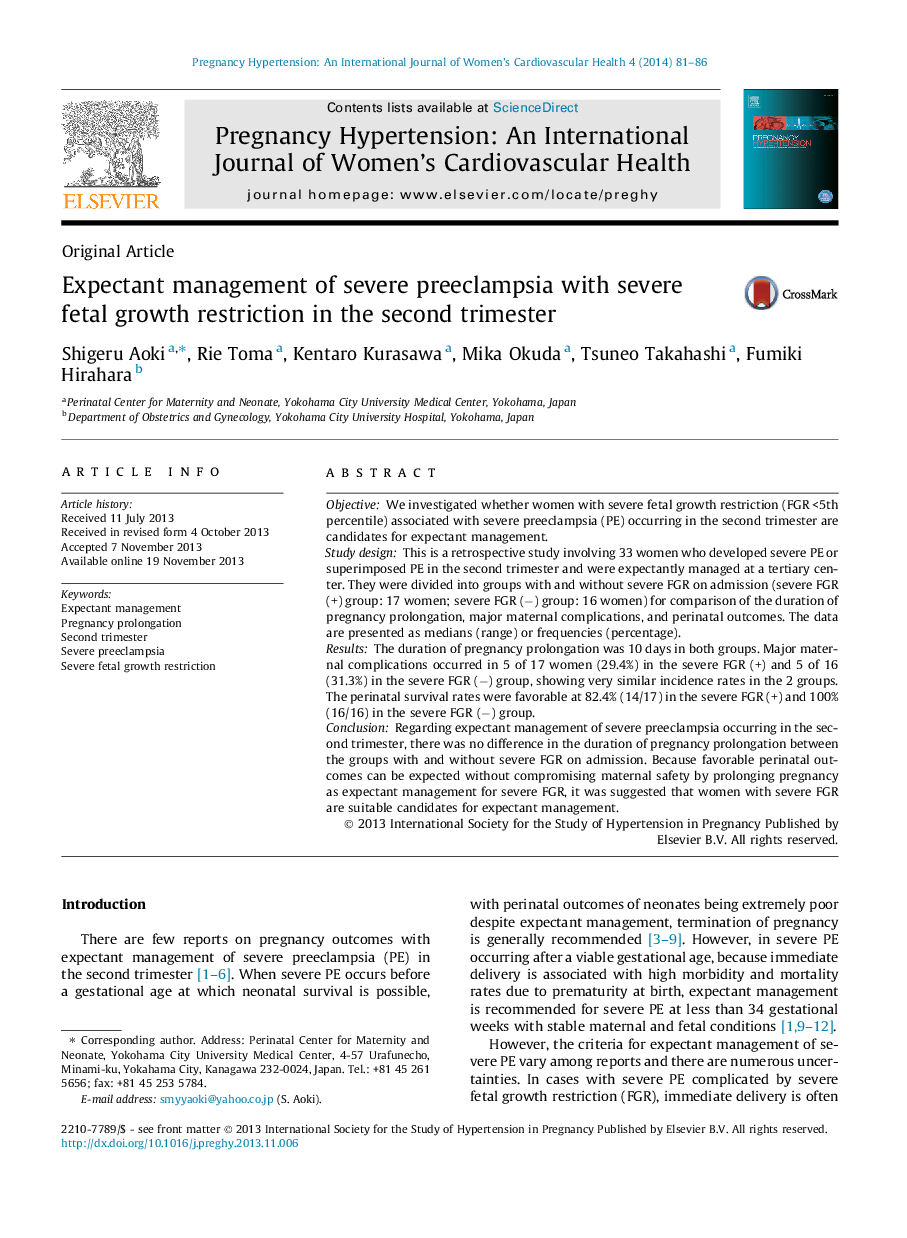| Article ID | Journal | Published Year | Pages | File Type |
|---|---|---|---|---|
| 3006074 | Pregnancy Hypertension: An International Journal of Women's Cardiovascular Health | 2014 | 6 Pages |
ObjectiveWe investigated whether women with severe fetal growth restriction (FGR <5th percentile) associated with severe preeclampsia (PE) occurring in the second trimester are candidates for expectant management.Study designThis is a retrospective study involving 33 women who developed severe PE or superimposed PE in the second trimester and were expectantly managed at a tertiary center. They were divided into groups with and without severe FGR on admission (severe FGR (+) group: 17 women; severe FGR (−) group: 16 women) for comparison of the duration of pregnancy prolongation, major maternal complications, and perinatal outcomes. The data are presented as medians (range) or frequencies (percentage).ResultsThe duration of pregnancy prolongation was 10 days in both groups. Major maternal complications occurred in 5 of 17 women (29.4%) in the severe FGR (+) and 5 of 16 (31.3%) in the severe FGR (−) group, showing very similar incidence rates in the 2 groups. The perinatal survival rates were favorable at 82.4% (14/17) in the severe FGR (+) and 100% (16/16) in the severe FGR (−) group.ConclusionRegarding expectant management of severe preeclampsia occurring in the second trimester, there was no difference in the duration of pregnancy prolongation between the groups with and without severe FGR on admission. Because favorable perinatal outcomes can be expected without compromising maternal safety by prolonging pregnancy as expectant management for severe FGR, it was suggested that women with severe FGR are suitable candidates for expectant management.
